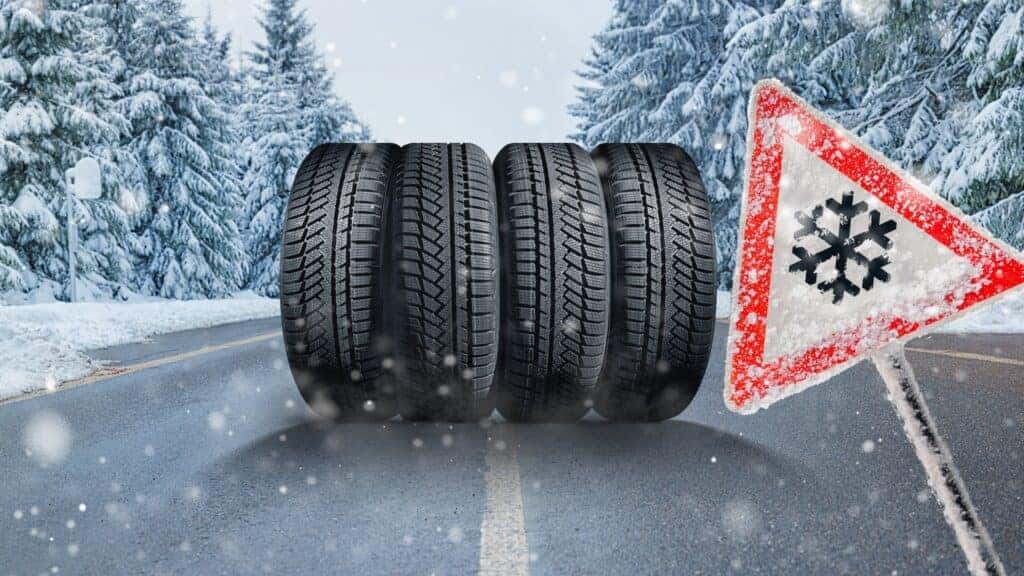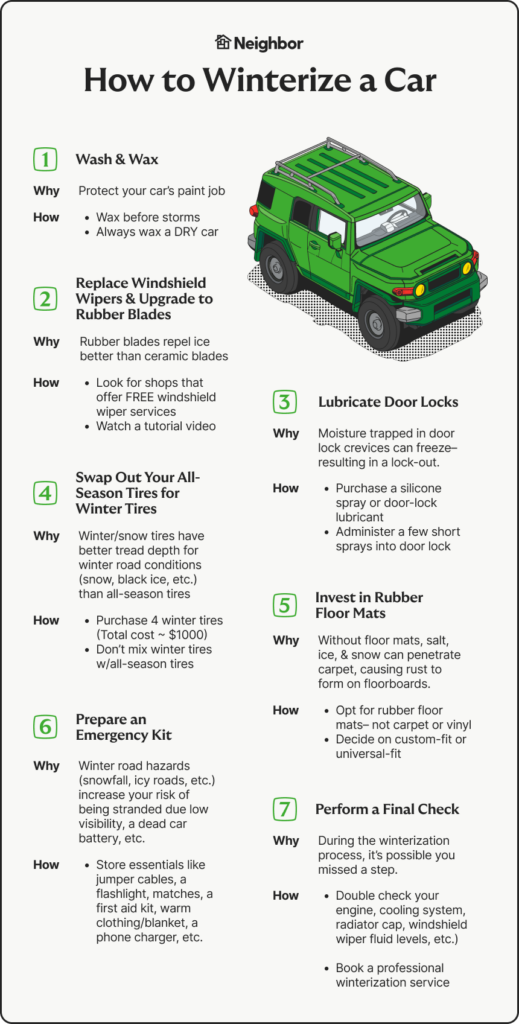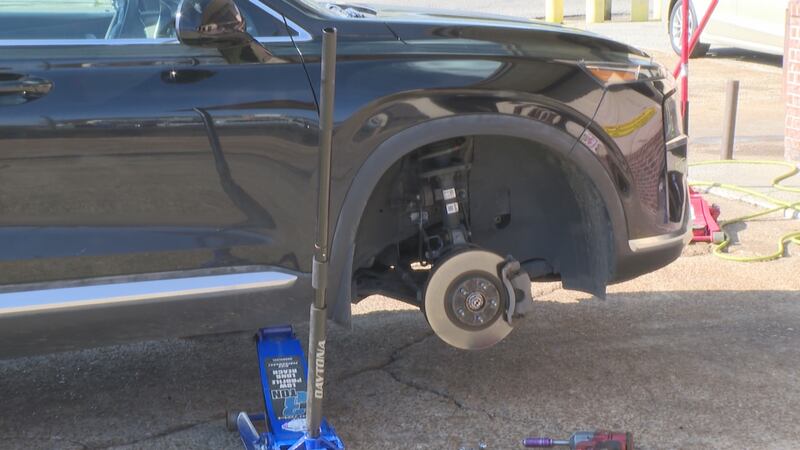Your car is more than just a way to get from point A to point B—it’s an investment that needs care all year round. Ignoring seasonal car maintenance can lead to unexpected breakdowns, costly repairs, and even safety risks.
Imagine driving on a hot summer day or through icy winter roads without your vehicle being properly prepared. How confident would you feel? You’ll discover why adjusting your car care routine with the changing seasons is crucial. Keep reading to learn simple steps you can take to protect your car, save money, and enjoy a smoother, safer ride no matter the weather.
Benefits Of Seasonal Maintenance
Seasonal car maintenance helps keep your vehicle in good shape all year. It prepares your car for changing weather conditions.
Regular checks and care reduce risks and improve how your car runs. Let’s look at the main benefits.
Enhancing Vehicle Safety
Seasonal maintenance helps find and fix safety problems early. It ensures brakes, tires, and lights work well in all seasons.
- Check tire tread and pressure for better grip
- Test brakes to avoid accidents
- Inspect lights for clear visibility
- Replace windshield wipers to improve view
Reducing Repair Costs
Fixing small issues early saves money on big repairs later. Seasonal checks catch wear and tear before it gets worse.
| Maintenance Task | Common Issue | Cost Saved |
| Oil Change | Engine wear | High |
| Tire Rotation | Uneven wear | Medium |
| Brake Check | Brake failure | High |
| Coolant Flush | Overheating | High |
Improving Fuel Efficiency
Seasonal maintenance keeps your engine and tires working well. This helps your car use less fuel and reduces emissions.
Tips to improve fuel efficiency through seasonal care:
- Keep tires properly inflated
- Change air filters regularly
- Use the right oil for the season
- Check and fix engine performance issues

Credit: www.racewaynissannj.com
Key Seasonal Checks
Seasonal car maintenance helps keep your vehicle safe and reliable. Checking important parts can prevent breakdowns and costly repairs.
Performing key checks before each season prepares your car for weather changes. Focus on tires, battery, and fluid levels for best results.
Tire Inspection And Rotation
Check your tires for wear, cracks, and proper pressure. Uneven tire wear can reduce safety and fuel efficiency.
- Look for tread depth and damage
- Maintain correct tire pressure
- Rotate tires every 6,000 to 8,000 miles
- Replace tires if tread is too low
Battery Health And Charging
Battery performance drops in cold or hot weather. Check the battery terminals and charge level regularly.
| Battery Check | What to Do |
| Corroded terminals | Clean with baking soda and water |
| Low charge | Recharge or replace battery |
| Old battery (3+ years) | Consider replacement |
Fluid Levels And Quality
Fluids keep your engine and brakes working well. Check levels and change fluids to avoid damage.
Important fluids to check:
- Engine oil – changes with mileage and season
- Coolant – prevents engine overheating or freezing
- Brake fluid – ensures safe braking
- Transmission fluid – smooth gear shifts
Preparing For Winter
Winter brings cold weather and icy roads. Your car needs special care to stay safe and work well. Checking key parts before the cold months helps avoid problems.
Seasonal maintenance keeps your car reliable. It also protects you and your passengers during winter drives.
Brake System Review
Brakes must work perfectly on slippery roads. Check brake pads, discs, and fluid levels. Replace worn parts to keep stopping power strong.
- Inspect brake pads for wear
- Check brake fluid level and quality
- Test brake response on dry and wet surfaces
- Look for unusual noises or vibrations
Heating And Defrosting Systems
Heating warms the car cabin and keeps windows clear. Defrosting prevents ice build-up on windshields. Both systems must work well for safe driving.
| System | Check | Why It Matters |
| Heater | Warm air flow | Keeps passengers comfortable |
| Defroster | Clears fog and ice | Maintains good visibility |
| Blower Fan | Runs quietly and steadily | Distributes heat evenly |
Emergency Kit Essentials
Winter emergencies can happen anytime. Prepare a kit with supplies to stay safe and comfortable if your car breaks down.
Your winter emergency kit should include:
- Warm blankets and extra clothes
- Flashlight with fresh batteries
- Ice scraper and snow brush
- Non-perishable snacks and water
- First aid kit and necessary medications
- Jumper cables and basic tools

Credit: www.neighbor.com
Getting Ready For Summer
Summer brings hot days that can strain your car. Proper maintenance keeps your vehicle safe and cool. Preparing your car now helps avoid breakdowns later.
Check key parts to ensure your car runs well in warm weather. Focus on cooling, air conditioning, and tires for best results.
Cooling System Maintenance
The cooling system stops your engine from overheating. Check the coolant level and look for leaks. Replace old coolant to keep the system working well.
- Inspect radiator hoses for cracks or leaks
- Flush and refill coolant every two years
- Check radiator cap for proper seal
- Make sure the thermostat opens and closes correctly
Air Conditioning Check
Air conditioning keeps the car cool and comfortable. Test the AC system before hot days arrive. Look for weak airflow or strange smells.
| Check Item | What to Do | Why It Matters |
| Refrigerant Level | Refill if low | Ensures cooling power |
| AC Filter | Replace if dirty | Improves air quality |
| Compressor | Listen for noise | Detects system damage |
| Belts | Check for wear | Keeps system running |
Tire Pressure And Alignment
Proper tire care improves safety and fuel efficiency. Check tire pressure often, as heat can cause it to rise. Inspect tires for uneven wear or damage.
Follow this quick tire maintenance checklist:
- Check pressure with a gauge when tires are cold
- Adjust pressure to recommended levels in the owner’s manual
- Look for signs of uneven wear or bald spots
- Get wheel alignment if steering feels off
- Rotate tires every 6,000 to 8,000 miles

Credit: www.wtok.com
Frequently Asked Questions
Why Is Seasonal Car Maintenance Necessary?
Seasonal maintenance helps your car run smoothly in different weather conditions. It prevents breakdowns and saves money.
What Are The Key Checks In Winter Car Maintenance?
Check the battery, tires, antifreeze, and brakes. These parts face extra strain in cold weather.
How Does Summer Affect My Car’s Performance?
Heat can cause tire blowouts and engine overheating. Regular checks keep your car safe and cool.
Can Seasonal Maintenance Extend My Car’s Life?
Yes, regular care reduces wear and tear. It keeps parts working well longer.
What Is The Best Time For Seasonal Car Maintenance?
Get your car checked before each new season starts. Early care avoids major problems later.
Conclusion
Seasonal car maintenance keeps your vehicle safe and reliable. It helps avoid costly repairs and breakdowns. Regular checks improve fuel efficiency and car performance. Changing tires and fluids protects your car from weather damage. Simple steps save money and extend your car’s life.
Stay ahead of problems by caring for your car each season. Small efforts make a big difference on the road. Keep your vehicle ready for every journey, every time.

